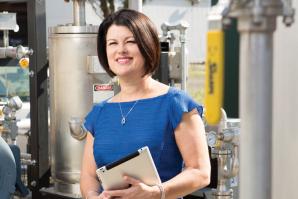Latest Stories

Dry Times
New water storage alone won't solve California's drought
California is in the third driest year in more than 100 years of record. Farmers throughout the state are seeing their water use curtailed, some communities are rationing water, and fish and wildlife populations are threatened. California needs additional storage capacity to weather such droughts, and it’s groundwater storage — not surface storage — that will have the greatest impact. Still, storage alone won’t be enough.

Got Storage?
California can't conserve its way out of a drought
Years of drought have baked away some of the divisions inside California’s Capitol, drawing opposing parties together in an effort to find solutions to the state’s ongoing water storage and conveyance problems.

Sustaining Tahoe
Can geotourism replace revenue lost by the gaming industry?
With gaming revenue on the decline and environmental sustainability an ongoing concern, the need for a new tourism strategy in Tahoe is two-fold. Enter geotourism.

Water Foul
The drought is putting in jeopardy efforts to shore up migratory bird populations
Doug Thomas stops his white pickup along the elevated dirt road that carves through the acres of newly planted rice stalks in Wheatland, Calif.
In this scene, replete with a myriad of migratory birds lazily grazing in the green fields, change is soon to come. The landscape, Thomas says, will be transformed into an oasis for waterfowl and shorebirds that will find a man-made wetlands to call home on their annual migration this fall.

Scavenger Hunt
Unpicked produce can change the way food banks feed the hungry — you just have to know where to look
“Eat local.” You’ve heard the phrase a billion times. It’s the guiding principle of the farm-to-fork movement, nudging us away from the Industrial Food Complex and toward our neighborhood farms. But there’s something even more local than a ranch down the road: the orange tree in your front yard.

It’s Impolite to Squat
EV owners find it increasingly difficult to plug in
Long before it was widely accepted, Sacramento attorney Mike Polis bought his first electric vehicle. He got started with a Toyota Prius, later upgraded to a Nissan Leaf and now drives a white Chevy Volt. On average, he saves more than $3,500 a year over his gas-powered counterparts, he can use the HOV lane as a single occupant and he charges his car for free at work.
A breath of fresh air
Winnie on EV's – 14 years ago
From April 2000:
I’ll tell you what brings a tear to my eye: when they sing the national anthem and it gets to the “Oh say can you see…” part, and I remember how we used to be able to see the beauty of the Sierra Nevada – and now on most days seeing the neon of the Esquire Plaza sign from the freeway requires squinting through the haze.

Killer Instincts
Butchery is finding a passionate female following
On a warm afternoon, soft spring winds are blowing across the campus at UC Davis. In a building on the university’s west corner, Cindy Garcia is hosing pools of blood down a drain. She places a pig skull on an inspection table, washes her hands and steps into the sunlight just as the parking lot is beginning to fill with shoppers toting grocery bags.

Sacramento Needs a Public Market
The Farm-to-Fork Capital is incomplete without one
Great food capitals of the world: Can you name them? Florence. Paris. Tokyo. Barcelona. Istanbul. Singapore. What do these destinations of culinary delights offer?




